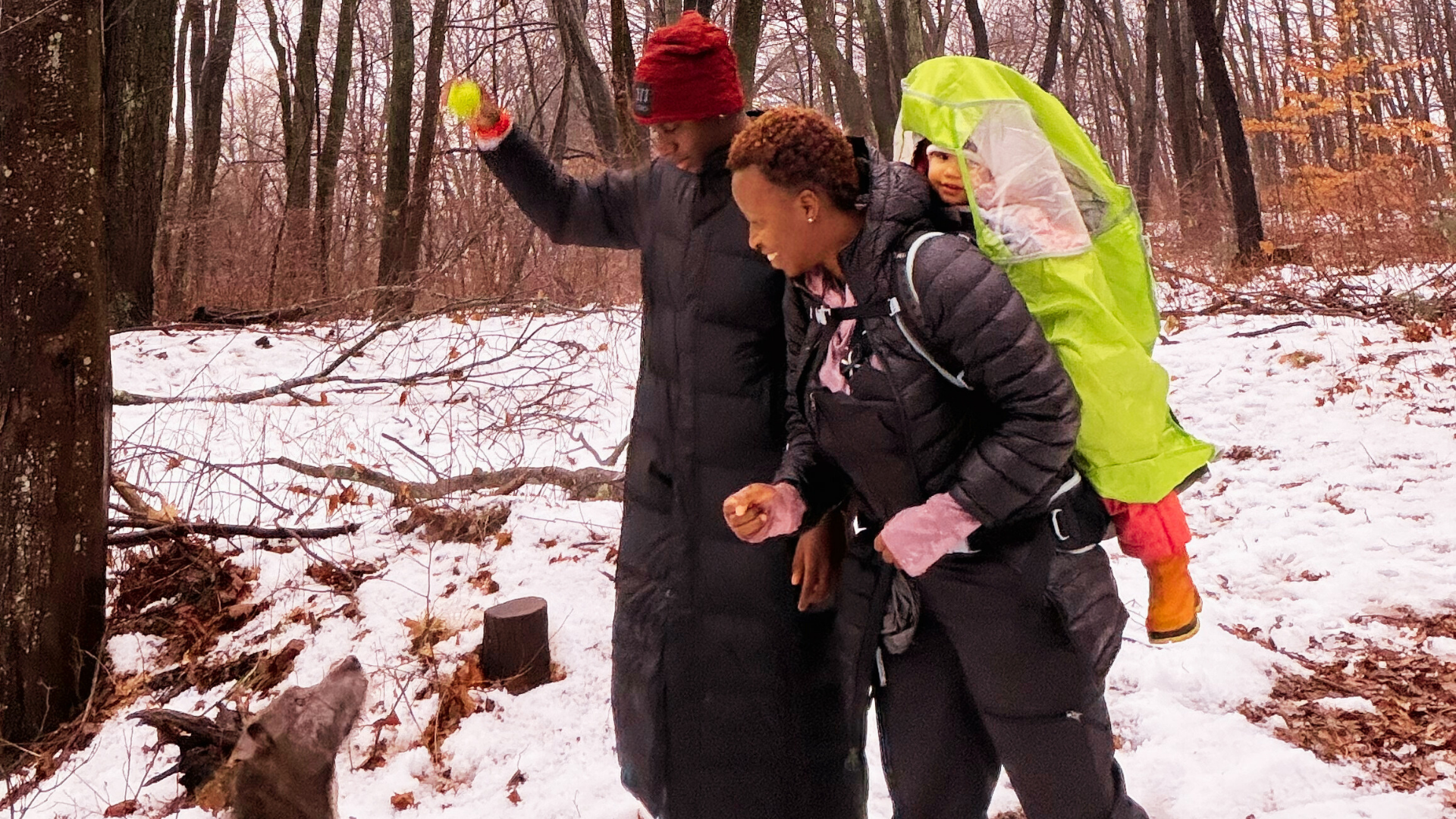Walks of Joy in the Quiet Season
30 min walk of Joy with my children
Nature has never been a place I go to escape my life.
It is where I return to myself.
In a world that constantly asks us to move faster, produce more, and stay connected to everything except our own bodies, nature offers something radical: presence. It does not rush us. It does not demand explanations. It simply invites us to arrive as we are.
Living in Maine has deepened this relationship for me. The trails, the forests, the quiet shoreline paths each season teaches something different. Winter asks for patience and stillness. Spring reminds me of renewal. Summer brings movement and expansion. Fall carries the wisdom of letting go. The land is always teaching, even when I am not looking for a lesson.
Winter, in particular, has shaped how I understand connection. As so many of us are living through the cold and darkness of this season, the motivation to spend long hours outside does not always come easily. Winter slows our bodies, our routines, our expectations. Some days, even stepping out the door feels like a negotiation. Big outdoor adventures may pause. Long hikes and grand explorations may be fewer. And that is okay.
Staying connected to nature does not require distance, intensity, or perfection. Sometimes, it begins with a short walk, a deep breath, or a moment of noticing.
As a mother, nature has become a shared language between my children and me even in the cold months. Some days we walk slowly, stopping every few steps to examine a leaf, a stone, or a patch of ice forming along the path. Other days, we move with urgency, bundled up, hands full, laughter mixed with exhaustion—just trying to get fresh air before the cold settles too deeply. None of it is wasted time. These moments shape how my children learn to be in their bodies, how they relate to the world, and how they understand rest, curiosity, and care.
Nature also holds space for grief, joy, and everything in between. There are days I walk carrying heavy thoughts—about justice, healing, survival, and responsibility. I don’t need nature to fix these things. I need it to remind me that I belong to something larger than urgency and noise. The earth has endured countless winters before this one. It knows how to rest without disappearing. It continues.
This understanding lives at the heart of my Walks Of Joy. My walks of joy are about relationship between body and land, breath and movement, thought and stillness. Some days the walk is ten minutes. Some days it is slow, layered with pauses, questions, and silence. Other days, it is simply about being outside long enough to remember that I am part of the natural world, even in winter.
In Walks of Joy, walking becomes a form of dialogue. The land listens without interruption. Our bodies respond honestly. We notice what is heavy, what is tender, what is ready to shift. These walks are not about fixing anything. They are about making space.
For families, for individuals, for those carrying stress, grief, or quiet exhaustion, winter walks can be small acts of care. A short loop near home. A pause to feel snow under boots. A shared silence. These moments are not less meaningful because they are brief. They are often more honest.
My work in healing, mindfulness, and cultural consulting is deeply informed by this relationship. Healing does not only happen in rooms or through words. It happens when we breathe cold air into our lungs, when our feet meet uneven ground, when we remember that our bodies were designed to move, rest, and adapt alongside the natural world.
Connection does not disappear in winter.
It simply changes shape.
Nature does not ask us to wait for warmer days.
It asks only that we show up, as we are,
and allow the conversation to unfold.
